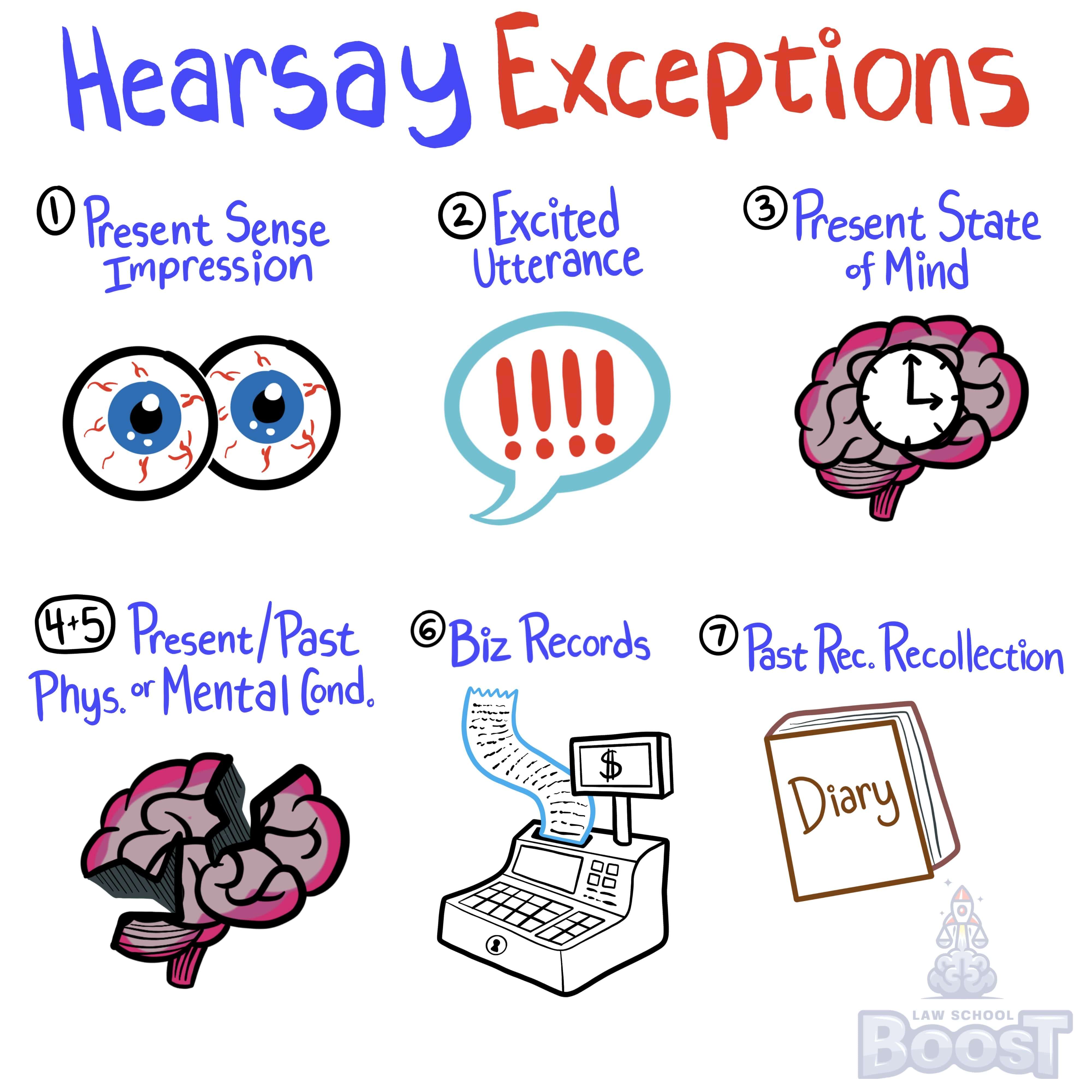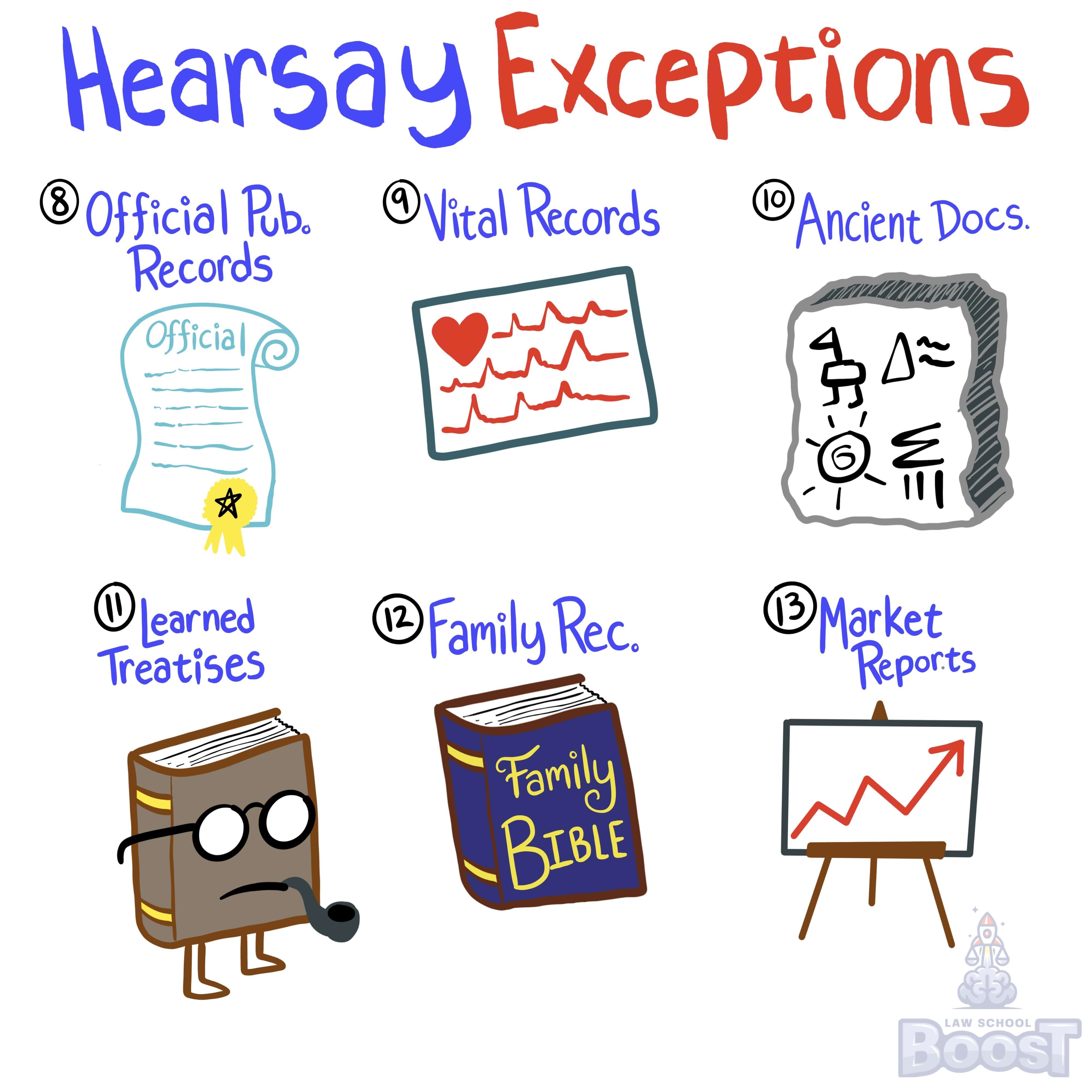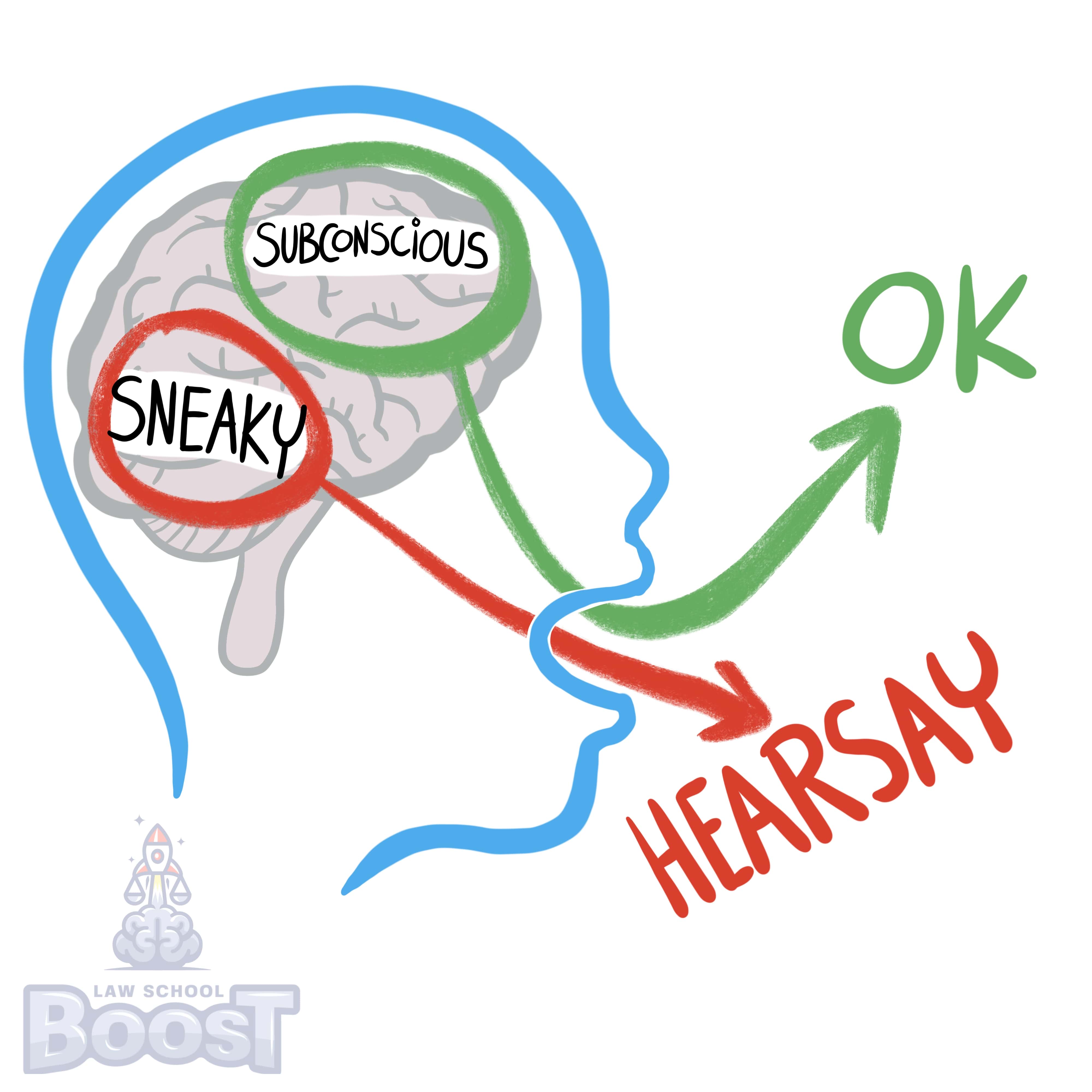🦅
Federal Evidence • Hearsay Exceptions - Unavailability NOT Required
EVID#050
Legal Definition
These are statements describing a present physical or mental condition (even if not made to a physician).
It doesn't matter whether the witness is available or not.
It doesn't matter whether the witness is available or not.
Plain English Explanation
Statements describing someone's current physical or mental state can be allowed as evidence even if the person who made the statement does not testify. It does not matter if that person is available to testify or not.
This rule allows statements that describe how someone is physically or mentally feeling at the moment they made the statement to be presented as evidence, even if the person who made the statement does not testify. For example, if someone told their friend "My stomach really hurts" and later there was a court case related to their health, their friend could testify that the person said their stomach hurt. The purpose of this rule is that statements about current health conditions are usually credible because people have no reason to lie. The rule recognizes that these kinds of everyday statements should be admissible even though they are technically hearsay.
This rule allows statements that describe how someone is physically or mentally feeling at the moment they made the statement to be presented as evidence, even if the person who made the statement does not testify. For example, if someone told their friend "My stomach really hurts" and later there was a court case related to their health, their friend could testify that the person said their stomach hurt. The purpose of this rule is that statements about current health conditions are usually credible because people have no reason to lie. The rule recognizes that these kinds of everyday statements should be admissible even though they are technically hearsay.
Hypothetical
Hypo 1: Bob attacks Sam with a knife, stabbing him in the leg. Sam tells the ambulance medic, "My leg feels like it's on fire from where he stabbed me." At Bob's trial for assault, the medic testifies that Sam described his leg as feeling like it was on fire. Result: Sam's statement to the medic describes his current physical sensation at the time, so it falls under the present physical condition hearsay exception and can be presented through the medic's testimony.
Hypo 2: Bob poisons Sam's coffee every morning at work to make him sick. Sam tells his doctor "I've felt nauseous every day when I arrive at the office." At Bob's trial for poisoning, Sam's doctor may testify about Sam's statements describing his daily nausea. Result: The rule allows Sam's descriptions of his physical condition to be admitted through the testimony of the doctor, even though Sam does not testify himself.
Hypo 3: Bob hits Sam's car while driving drunk. Responding officer Amy asks Sam, "Are you injured?" Sam responds, "Just some whiplash in my neck, I think." At Bob's trial for drunk driving, Amy can testify about what Sam said regarding his whiplash. Result: The present physical condition hearsay exception allows the officer to testify about Sam's statement describing his physical condition at the time.
Hypo 2: Bob poisons Sam's coffee every morning at work to make him sick. Sam tells his doctor "I've felt nauseous every day when I arrive at the office." At Bob's trial for poisoning, Sam's doctor may testify about Sam's statements describing his daily nausea. Result: The rule allows Sam's descriptions of his physical condition to be admitted through the testimony of the doctor, even though Sam does not testify himself.
Hypo 3: Bob hits Sam's car while driving drunk. Responding officer Amy asks Sam, "Are you injured?" Sam responds, "Just some whiplash in my neck, I think." At Bob's trial for drunk driving, Amy can testify about what Sam said regarding his whiplash. Result: The present physical condition hearsay exception allows the officer to testify about Sam's statement describing his physical condition at the time.
Visual Aids



Related Concepts
In California, how does the ancient documents hearsay exception differ?
In California, how does the judgments of conviction hearsay exception differ?
In California, how does the learned treatises hearsay exception differ?
In California, how does the official and public records hearsay exception differ?
In California, what is the contemporaneous statements hearsay exception, and does it require the witness to be available?
In California, what is the spontaneous statement hearsay exception, and does it require the witness to be available?
What is the ancient documents hearsay exception, and does it require the witness to be available?
What is the business records hearsay exception, and does it require the witness to be available?
What is the excited utterance hearsay exception, and does it require the witness to be available?
What is the family records hearsay exception, and does it require the witness to be available?
What is the judgments of conviction hearsay exception, and does it require the witness to be available?
What is the learned treatises hearsay exception, and does it require the witness to be available?
What is the market reports hearsay exception, and does it require the witness to be available?
What is the official and public records hearsay exception, and does it require the witness to be available?
What is the past physical or mental condition hearsay exception, and does it require the witness to be available?
What is the past recorded recollection hearsay exception, and does it require the witness to be available?
What is the present sense impression hearsay exception, and does it require the witness to be available?
What is the present state of mind hearsay exception, and does it require the witness to be available?
What is the property records hearsay exception, and does it require the witness to be available?
What is the vital records hearsay exception, and does it require the witness to be available?


